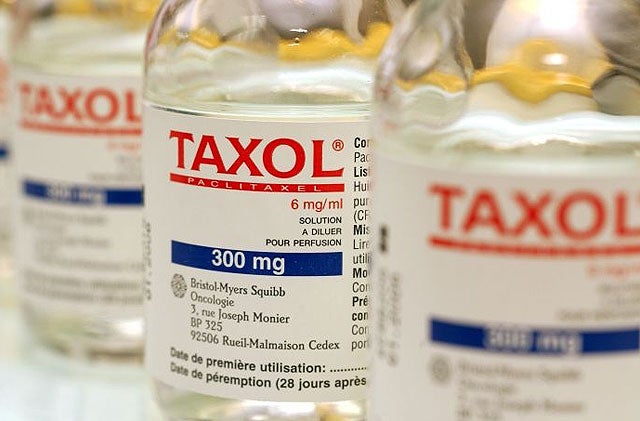Treatment advance for drug-resistant diseases

Your support helps us to tell the story
From reproductive rights to climate change to Big Tech, The Independent is on the ground when the story is developing. Whether it's investigating the financials of Elon Musk's pro-Trump PAC or producing our latest documentary, 'The A Word', which shines a light on the American women fighting for reproductive rights, we know how important it is to parse out the facts from the messaging.
At such a critical moment in US history, we need reporters on the ground. Your donation allows us to keep sending journalists to speak to both sides of the story.
The Independent is trusted by Americans across the entire political spectrum. And unlike many other quality news outlets, we choose not to lock Americans out of our reporting and analysis with paywalls. We believe quality journalism should be available to everyone, paid for by those who can afford it.
Your support makes all the difference.A new weapon has been developed in the war against drug-resistant diseases and it promises to result in more effective treatments for many of the most intractable illnesses, ranging from superbug infections to tuberculosis and cancer.
US researchers believe they have found a way to overcome the drug resistance that is frequently seen in ovarian cancer patients given the drug Taxol – a chemotherapy agent that becomes less effective over time. The breakthrough could have wider implications for the many other illnesses where drug resistance is a problem, such as multiply-resistant strains of staphylococcus that result in hospital-acquired infections.
The study focussed on a way of boosting Taxol levels within ovarian cancer cells by combating the cell's natural mechanism of expelling the drug from within its outer membrane, which is one way drug-resistance can develop. "Taxol works pretty well in the beginning – 70 or 80 per cent of patients have a response – but it fails in the end because drug resistance develops," said Nelson Teng, a professor of obstetrics and gynaecology at Stanford University in California.
"Overcoming Taxol resistance is big, it's huge," he added. "In essence, the technology can be used to overcome one of the most challenging types of problems of drug resistance. This could potentially be used with any drug which is effective but has a delivery problem, not just Taxol."
Taxol resistance develops because cancer cells become sensitised to the medication. That happens as a result of the proliferation of pumps on the cell membrane, which normally eject foreign material from within the cell but also work on keeping Taxol levels low.
"It is kind of like a bouncer. If you are not recognised as being part of the club, then you are kicked out," added Paul Wender, a chemistry professor at Stanford who led the research team.
Taxol-resistant cancer cells produce a lot more pumps than non-resistant cells. That allows them to proliferate in such a way that a cancer can spread. The scientists circumvented the problem by giving Taxol better powers of penetrating the cell membrane.
"If we think of the pump as being a bouncer for the cellular club, effectively what we are doing is disguising one of these therapeutic agents to get it in through the back door or the side door. We are not even going to deal with the bouncer," Professor Wender said.
The study, published in the journal Proceedings Of The National Academy Of Sciences, found that surrounding the Taxol molecule with the amino-acid arginine, which occurs naturally in the body, increased the ability of the drug to both enter and keep inside the cell.
"Nature has developed all of this firepower for getting things into cells, and one of the ways is to create entities that are arginine-rich," said Professor Wender. "Arginine-rich sequences appear to figure in the mechanism by which many pathogens invade cells. It is an exciting result to be able to take a drug known to work against cancer, but stymied by resistant cells, and restore it to effectiveness using an arginine transporter. This bodes well for use with other drugs that succumb to resistance."
Arginine-rich Taxol was tested on mice injected with human ovarian cancer cells. Further tests are needed before it can be tested in clinical trials on humans.
Join our commenting forum
Join thought-provoking conversations, follow other Independent readers and see their replies
Comments